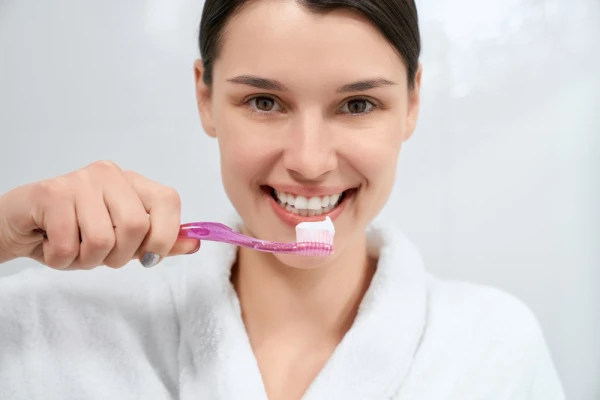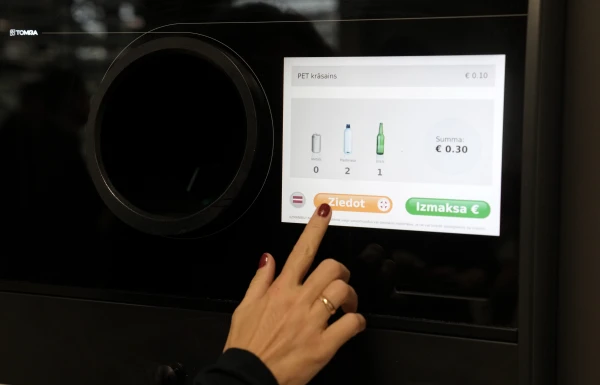
If you have developed sensitivity in one or more teeth, first consult a dentist to determine the cause. Then, if the sensitivity is caused by simple enamel wear or natural gum recession, try the following home remedies.
Use Desensitizing Toothpaste
Unfortunately, tooth sensitivity caused by enamel wear or gum recession cannot be eliminated with fillings. Instead, try brushing your teeth with a desensitizing toothpaste that can be purchased at a pharmacy. These special toothpastes contain ingredients that reduce sensitivity by filling the channels (known as tubules) in the dentin.
Try applying a small amount of toothpaste to your finger or a cotton swab and spreading it over the sensitive areas before bed. Spit it out but do not rinse your mouth. After a few weeks, tooth sensitivity should decrease.
Try Rinsing with a Fluoride Solution
Fluoride solutions that can be purchased over the counter at pharmacies or in the health products section of grocery stores can help reduce sensitivity, especially in people suffering from cavities. Use it once a day. Swish it around in your mouth, then spit it out.
Sometimes, people with sensitive teeth require a stronger fluoride rinse or gel than those sold over the counter. For example, some treatments for gum disease, such as remineralization (which reduces plaque buildup), can make sensitive teeth even more sensitive than usual. In such cases, dentists may apply a fluoride gel that can help address the issue.
Keep Your Teeth Clean
Plaque, a white sticky substance that forms on teeth, releases acid that irritates the teeth, especially if they are naturally sensitive. Fight plaque daily by brushing your teeth at least twice, preferably right after meals and especially before bed, and floss at least once a day.
Use a Soft-Bristled Toothbrush
Often, people cause their own tooth sensitivity by pressing too hard with the brush and/or using a brush with hard bristles that can damage the protective tooth enamel. When gums recede (often a natural part of the aging process), exposed dentin becomes even more vulnerable to toothbrush abrasion.
Use the softest bristle brush you can find, and apply only a little pressure while brushing (in fact, if you press lighter, the bristles will move more freely and do their job more effectively than with heavy pressure).














Leave a comment